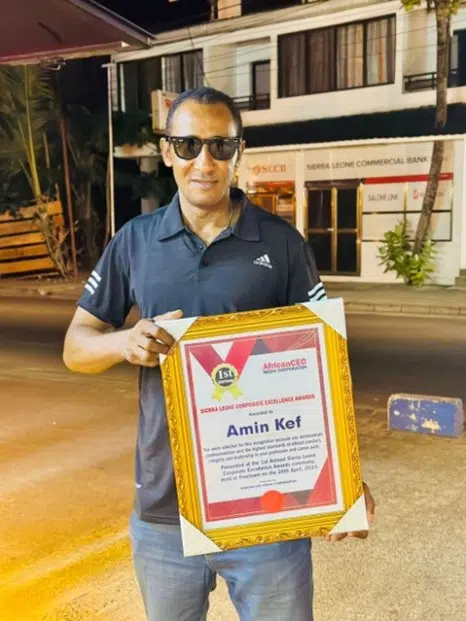
By Amin Kef (Ranger)
The recent release of 30 improved varieties of maize, rice and cassava by His Excellency President Dr. Julius Maada Bio at the Rokupr Research Centre in Kambia District marks a defining moment in Sierra Leone’s agricultural history. It represents not merely a scientific breakthrough, but the crystallization of a national vision; Feed Salone , that seeks to transform agriculture from subsistence to science, from survival to sustainability.
This milestone underscores a fundamental truth: food security begins with innovation. By prioritizing research and empowering local scientists, the Bio administration has made clear that national self-sufficiency will be built not on rhetoric, but on results.
President Bio’s statement that “agriculture is a science” reflects a bold, pragmatic philosophy. It acknowledges that lasting progress in the sector depends on data, research and technology; not guesswork or outdated practices. The release of high-yielding, climate-resilient and pest-tolerant seed varieties is therefore a strategic investment in resilience.
In a country where average rice yields remain at 2–3 tons per hectare, the introduction of new rice strains capable of producing 7–8 tons per hectare is transformative. These seeds will not only raise productivity and farmer incomes but also reduce dependence on costly food imports; a key factor in stabilizing the national economy.
The success of the Sierra Leone Agricultural Research Institute (SLARI), once on the verge of collapse, is a testament to the Government’s renewed commitment to institutional rebuilding. Under the leadership of Dr. Abdulai Conteh and with the support of international partners like FSRP and SLARiS, the institute has regained its place as a hub of innovation and applied research.
This revival aligns seamlessly with the Feed Salone Programme’s Pillar Two, which focuses on strengthening seed and input systems. As explained by the Minister of Agriculture and Food Security, Dr. Henry Musa Kpaka, these improved seed varieties are the backbone of a new agricultural ecosystem; one that connects research institutions, private sector partners and farmers in a shared pursuit of national food sovereignty.
Among the 30 newly released varieties, the decision to name one “Maada Cassava” carries symbolic weight. It is both a tribute and a statement; a recognition of leadership that places science, innovation and farmers at the centre of national development. In doing so, it reminds citizens that food security is not a distant dream but a deliberate policy choice driven by vision and commitment.
What unfolded at Rokupr was not merely a ceremonial launch but a turning point in governance; one where political will and scientific capacity converged. The Bio administration has demonstrated that agricultural transformation is achievable when research is adequately funded, scientists are empowered and policies are grounded in evidence.
The challenge now lies in implementation. Ensuring that these improved seeds reach farmers across the country will be critical. Extension services, distribution networks and access to finance must all be strengthened to turn this scientific triumph into tangible impact on the ground.
The release of these new varieties signals a broader shift; from dependency to self-reliance, from import vulnerability to production confidence. It shows that Sierra Leone’s agricultural potential can be unlocked through local expertise, institutional reform and strategic investment.
As President Bio toured the demonstration plots, surrounded by farmers and researchers, the moment captured a vision taking root; that Sierra Leone’s future prosperity will grow from its own soil.
This initiative is more than an agricultural success story; it is a model of governance anchored in science, leadership and national pride. If sustained, it could mark the beginning of a genuine revolution in food systems; one that secures not just the nation’s plates, but its future.









